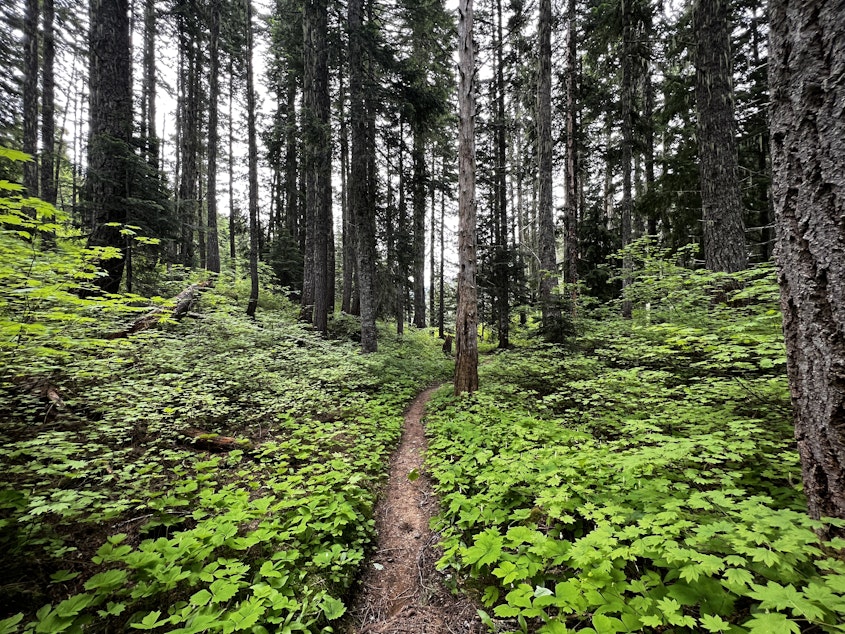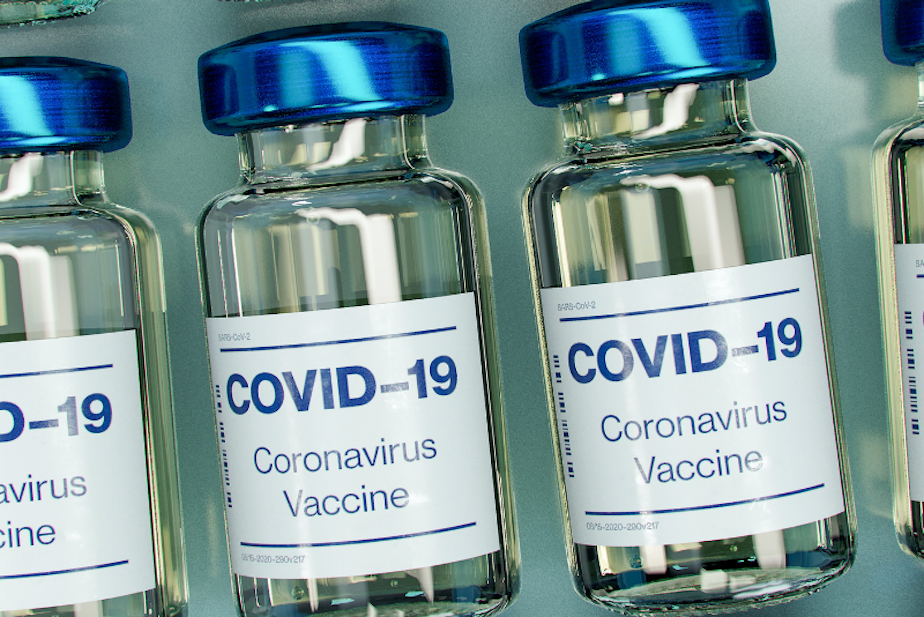Don't bring fried chicken into a newsroom: Today So Far

- The Everett Herald staff has formed a union.
- Nobody wants to come into work on Fridays. Why?
- Some Covid news, and some good vaccine news.
This post originally appeared in KUOW's Today So Far newsletter for July 20, 2022.
I am not a superstitious person, but I do have one journalism superstition: You should never bring fried chicken into a newsroom. Bad things will happen. Rotisserie is OK. Tandoori is great. But never fried.
This stems from a fried chicken incident at a newspaper I worked at years ago. The company had staved off employee concerns about economic downturns, and industry woes, until a big staff meeting. Management provided big buckets of fried chicken and cups of juice, spread across big tables. And it was during this fried feast that they informed everybody that there would be layoffs. Midbite into a leg with grease running down their hands was when people learned that staff was being trimmed.
Now, I was not personally there for this incident — I worked with those who were — but I was for the trimmed down aftermath. I was there when an HR manager came through our office to tell us that while our insurance coverage would be going down, we'd be paying more out of our paychecks for it. However, they brought in a private, supplemental insurance representative, in case we wanted to pay even more to make up the difference. For that meeting, they only brought in bagels and juice. I figured that while the news was bad, it wasn't fried-chicken-losing-your-job bad. So among a handful of us in the newsroom, we figured fried chicken was an omen of sorts. It was like bringing a banana on a boat — don't do it.
I was also there for the many nights I worked so late, racing toward a morning deadline, that I slept under the conference room table (eventually, somebody got me a cot). I was there when I reported on a local food bank, only to go back inside for myself once the interview was done. I could go on. But the main point: it was a lot of work, on top of more work, at well below a living wage.
This all came to mind yesterday when I read that the staff at the Everett Herald has decided to form a union, demanding "fair working conditions, comprehensive benefits and a livable wage." Employees are asking the company to voluntarily recognize their union.
The Herald is owned by the same company I once worked for (so I'm not entirely without bias here). It owns most local newspapers throughout Washington, and there are a lot of us former employees, in this region, who have traded similar stories. I haven't spoken too publicly about my experience back then, because it's a little bittersweet. I am grateful for that job, despite the gripes. It offered me an entrance into a career that I am passionate about and I am proud of the work I did there. I love the communities I reported in. And I love the people I worked with, and I don't want to burn those who are working there now.
I don't know the up-close situation at the Herald. But I do know that there is an immense (often overlooked) value of local, community journalism. Which is why it is important to support it, and the people working so hard to keep it going. You shouldn't have to sleep under the conference table to get the job done, and earn so little. Read more on the Today So Far Blog.
Nobody wants to be in the office on Fridays. That's the conclusion of Abha Bhattarai, economics correspondent for The Washington Post, who recently took a deep dive into the hybrid worklife that has become more and more popular these days. Folks are still working. They just don't want to be in the office to do it. This is especially true for employees who only need an internet connection to do the job.
"Once people settle in to their hybrid work schedules it turns out that there is a universal truth out there, which is that everybody wants to work from home on Fridays," Bhattarai told KUOW's Soundside. "We're seeing that play out in office buildings around the country and it's really changing they way employers think about Fridays, and it's also changing larger patterns in the community. Lunch spots are finding they are empty on Fridays. Parking garages are emptier."
She also looked at one corporation as a case study and found that about 30% of employees were swiping their badges on Friday, compared to about 50% midweek. Mondays are also commonly used as at-home days, but Friday is the big one. Hear Bhattarai's full conversation with Soundside here.
If you look at the map of Washington state on the Department of Health's Covid dashboard, it's just a big blob of red, meaning that cases are "high" right now in just about every county. In King County, cases are still high but have been on the decline over the past week, by 4%. On average, King County is reporting 893 new cases each day.
Hospitalizations are also down in King County — 26% — and only 11% of the state's hospital beds are occupied by Covid patients. But here's the catch: Overall hospital capacity across Washington state is reportedly at 130%. There are a few reasons for this, such as a backlog of care from the pandemic, and staffing shortages.
Some good pandemic news: vaccine boosters offer decent protection against severe Covid. If you've been waiting for boosters to be updated for omicron, but are still nervous about how the virus is spreading widely, this is your answer. A new study out of UW Medicine indicates that vaccines plus boosters keep antibody response high enough that it fends off severe Covid illness. Basically, you can still get sick (just like with previous versions), but you're less likely to get a severe case, and in turn head to the hospital.
AS SEEN ON KUOW

Mineral Creek trail cuts through the Alpine Lakes Wilderness on route to the Pacific Crest Trail. It hasn't been usable for more than five years, making it a priority for maintenance. It's peak hiking season in the PNW. But who takes care of all our trails? Read more here. (Alec Cowen / KUOW)
DID YOU KNOW?
Cities like to give themselves nicknames. Seattle is the "Emerald City," for example. And in Portland, Ore., they're the Rose City (which is why Seattle has Emerald City Comic Con and Portland has Rose City Comic Con).
But Washington has a rose city of its own — Chehalis. Yep. Since 2000, Chehalis has held the nickname of "Rose City." Apparently, locals have also used "Friendly City," and "Mint City." And back in 2010, Chehalis approved a motto for the town: "Where Heart and History Shape Our Future."
ALSO ON OUR MINDS

The CDC endorses Novavax, a more traditional Covid vaccine, for adults
Most Americans have gotten at least their primary Covid-19 vaccinations by now, but CDC officials said between 26 million and 37 million adults haven't had a single dose — the population that Novavax, for now, will be targeting.

